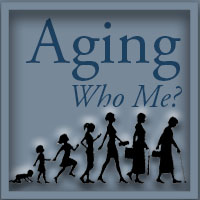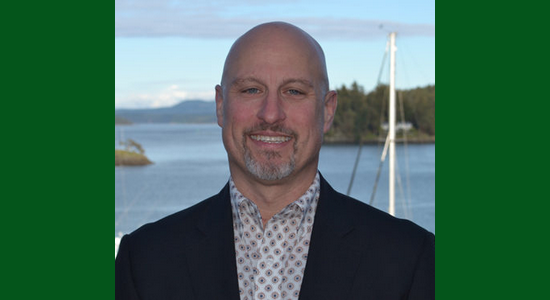— from Rosie Kuhn —
Sam is a 73 year old retired fellow living in a two bedroom apartment in Houston. He is a veteran from the Vietnam era, had a decent enough life with a couple of kids, an ex-wife, and a girlfriend of 25 years. Sam has been happy in his routines, stopping in at his local bank where he has coffee with some cronies. He visits with neighbors and participates in his community, as he as done for many decades.
A longtime client of mine, James, in his mid 40s, lives in Denver. He has four children, a wife he adores, a business that in this moment is supporting the family, and he has been sober for almost 20 years. James calls me because he feels he is about to fall off the wagon. He doesn’t know what to do.
James got a call from his dad’s girlfriend a few months back. She said that Sam’s memory is going. He can’t live alone anymore. She told James to come get his father and take him back to Denver.
After three months of Sam living in the basement of his home, James is caught in the Big Fat Be-With of his father’s failing memory, the financial fiascos of a person with no will, and no plans for this part of his life. They are dealing with the VA, day care centers and long term care facilities. Yesterday they got the diagnosis that it is most likely Alzheimers. None of this was part of their reality until they got the call three months ago.
Sam wants to go home, back to his apartment and to his routines in Houston. He is angry, isolated, lonely, confused, and trapped in his son’s world. Sam and James are living in different realities. James pleads with me – “Rosie, just tell me what to do.”
I rarely tell people what to do. Why? Because rarely are people willing to practice what I preach. However, I give James some instructions. “First, James, educate yourself on dementia and Alzheimers. Google any and every question you have. Utilize the experience and knowledge of the millions of people who have gone through what you are currently going through.” There is the pause that tells me he isn’t going to do what I instructed him to do. I ask – “What’s happening right now, James?”
James begins to share how he doesn’t have time to educate himself about his father’s illness; that he needs to attend to his roofing business, which is lacking his attention, as is his wife, family, and his own health. I totally get it, and so do millions of families that find themselves in James’ shoes with an unexpected circumstance, an uninvited intrusion on an already overwhelming life. It is crazy-making in every way possible. And, there is no way out.
This week, James is flying to Houston to close out his father’s apartment. He will bring back to Denver a few remnants of Sam’s life. He doesn’t want to do this. He doesn’t want to be responsible for doing all the things that need to be done. He doesn’t want one more thing to get in the way of trying to live the life he thinks he should be living. He doesn’t want to admit that he is actually a grownup who now has to find a way to make challenging choices for a person that doesn’t want his help.
I ask James: “What if this is as good as it gets?” James responds: “Rosie, this is as good as it gets, and I don’t like it one bit.” I ask the question all of my clients hate: “James, since this, then, is as good as it gets, what is it like inside you, in the midst of all this ever-increasing turmoil?”
James answers: “I feel powerless. And, I don’t like feeling powerless. I feel like I’m stepping off a cliff into the abyssness of not knowing. There is no sanity, reason, or helpfulness in this place. But here I am.” Now we are getting somewhere.
No person I know looks forward to when they are the caregiver for a family member who is failing mentally, physically, or, for that matter, spiritually. Few prepare themselves for disease, decline, and death of parents, partners, or children. Most people I know fear the moment when they are asked to put their life on hold in order to support others in a way they never thought about before. They are asked to choose between what they believed to be their highest priority – quite often money, and what wasn’t even close to the top of the list, the care and nurturing of a person who may not know who they are anymore. Yes, Sam is beginning to forget that James is his son.
The process of aging has caught James off guard. When he and I talked a second time this week he was more centered and grounded. Where earlier in the week he was split and pulled in many directions, today he knows that is he is on his true path, at least in this moment. In this moment of clarity he can see that he is immersed in an experience that he knows will change his life in a good way.
Stephen Levine, an American poet, author and teacher best known for his work on death and dying and who was a very wise person, said something like, diseases, such as cancer and Alzheimers are gifts for the person who has everything. That statement packs a wallop of wisdom. When we are immersed in the material world, we often lose connection with the world of the meta-physical, the meta-world that is the driving force of what is desired and manifested in the material world. It’s our thoughts, emotions, and body sensations. And, it is the intelligence of all of life.
When we find ourselves in a game-changing situation we are usually required to question reality. When we question reality we find ourselves sometimes powerless within the material world, yet curiously empowered to be present to the meta-world – thoughts, emotions, body sensations, intuitions, Divine guidance, and more. With access to this part of life, one can choose based on a deeper sense of truth and a deeper knowing of self. James is exploring his meta-world for a foundation upon which to respond to what life is currently demanding of him.
This is all a kick-in-the-head for James and his family. They are beginning to reorient values and priorities to align with their desire to care for Sam in the most humane and loving way possible. As James reflects on his circumstances, he is beginning to appreciate those values that were long ignored, though he knew they were far more important than he wanted to admit.
Aging means maturing, wising-up, expanding one’s orientation to the world, discovering a personal way of looking at life that allows grace and dignity to exist within everyone. This family – Sam, James, and the rest – are accepting the invitation to age, to mature, and to wise up in the most loving way possible, through the game-changers that were least expected.
If you’d like to join Dr. Rosie in the AGING – Who Me discussions at the Orcas Island Senior Center, they are meeting this coming Tuesday – June 27th, from 10 – 11:30 a.m. If you’d like to read more from Dr. Rosie, visit her website www.theparadigmshifts.com, where you will find blogs, videos and her books. Or, if you’d like to set up a session, feel free to call her at 360-376-4323.
**If you are reading theOrcasonian for free, thank your fellow islanders. If you would like to support theOrcasonian CLICK HERE to set your modestly-priced, voluntary subscription. Otherwise, no worries; we’re happy to share with you.**









Rosie, I am printing this out to take to my oldest son when I visit him this coming week. Also taking the Advance Directive document that I have put off filling out. We think we will live forever or that at the very least we won’t be a bother to our children in the end. But one can plan only so much. Excellent article and sensibilities. Thanks.